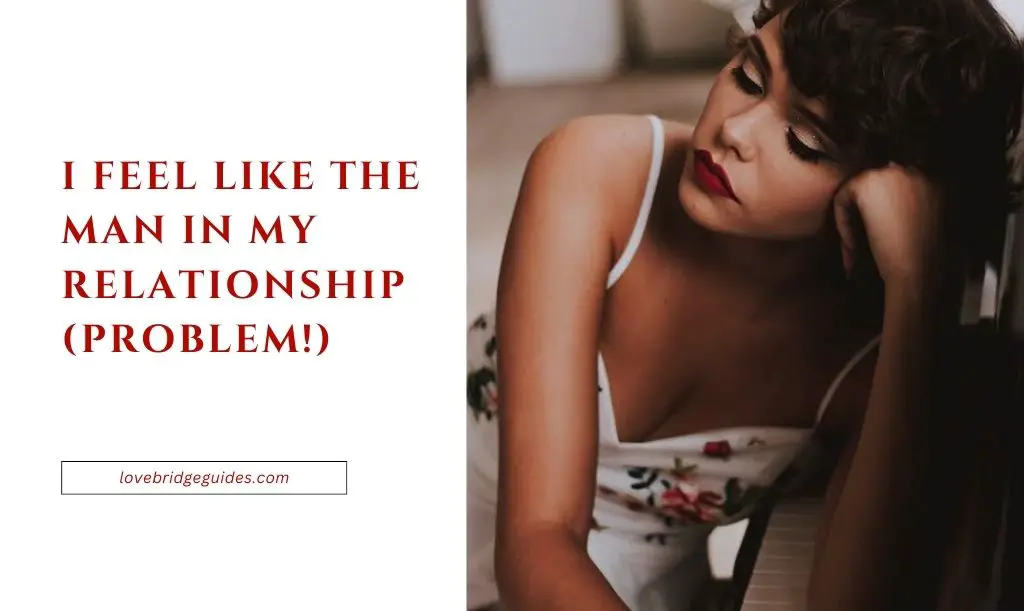‘I feel like the man in my relationship!’
In every relationship, there exists an unspoken dance between two individuals.
This dance encompasses the ebb and flow of power dynamics, emotional vulnerability, and shared responsibilities.
It’s in these intricate steps that each partner seeks their own sense of identity and fulfillment.
Yet, this balance is not always easy to find or maintain.
I feel like “the man” in a relationship. What does this even mean?
Well, traditionally speaking, society has often associated “feeling like the man” with embodying stereotypical masculine traits: strength, dominance, assertiveness.
However, it’s essential to recognize that these conventional notions of gender roles are archaic constructs perpetuated by social norms.
To feel like “the man” shouldn’t be limited to one gender or confined within stringent expectations; rather, it should encompass an individual’s confidence in their abilities to contribute meaningfully and equally to their relationship.
It transcends gender stereotypes and encourages embracing personal strengths while also championing equality within the partnership.
Understanding Gender Roles in Relationships
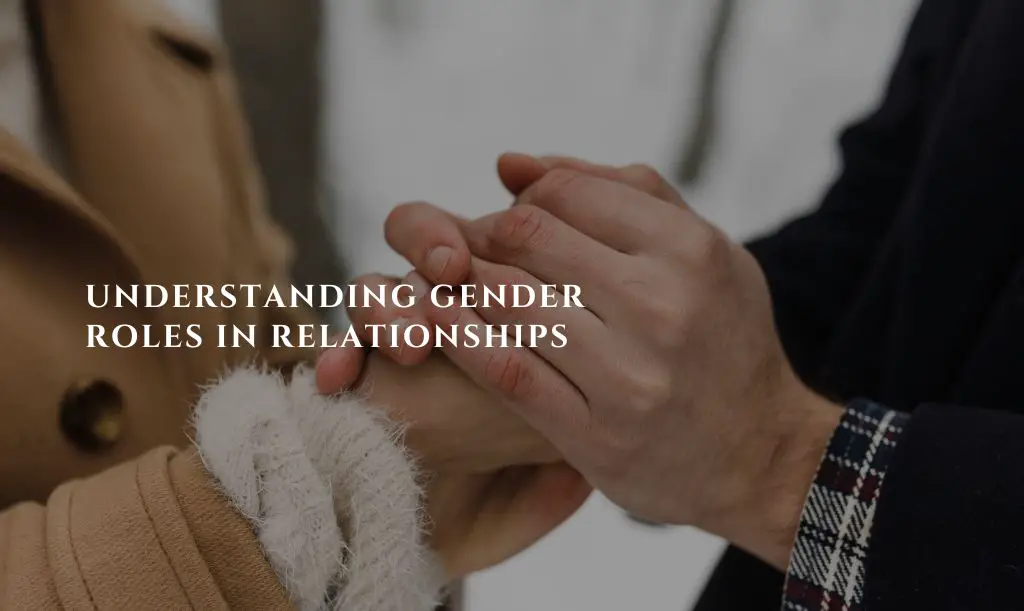
Society has long dictated what it means to be a man or a woman within the context of a relationship.
Men are expected to be strong, dominant, and providers, while women are supposed to be nurturing, submissive, and caretakers.
But let me tell you something: these outdated roles have no place in modern relationships.
We live in an era where equality should reign supreme, but unfortunately, many individuals still cling to these archaic stereotypes.
To truly understand the absurdity of these gender roles we find ourselves trapped in today, we must take a journey back through history.
Once upon a time, men were the hunters and protectors while women took care of hearth and home.
But guess what?
We no longer live in caves or rely solely on physical strength for survival!
The world has evolved; technology has advanced; opportunities for education and employment have expanded for both genders.
So why do we still insist on confining ourselves within these suffocating gender boxes?
The Impact Of Cultural And Social Influences On Relationship Dynamics
Culture plays an influential role in shaping our perceptions of what it means to be “the man” or “the woman” within a relationship.
Some societies still hold onto rigid ideologies that perpetuate inequality between genders.
It’s astonishing how deeply ingrained these beliefs can be, subtly weaving their way into our everyday interactions with our partners.
Social media further exacerbates this issue by bombarding us with unrealistic portrayals of romantic relationships that reinforce stereotypical behavior patterns.
Are we really going to let culture and society dictate how we should feel within our relationships?
It’s high time we break free from these shackles and redefine what it means to be a partner, regardless of gender.
Love should not come with a set of preconceived notions or expectations; it should be a fluid, ever-evolving experience where both individuals can express themselves fully without being constrained by societal constructs.
Power Dynamics within Relationships
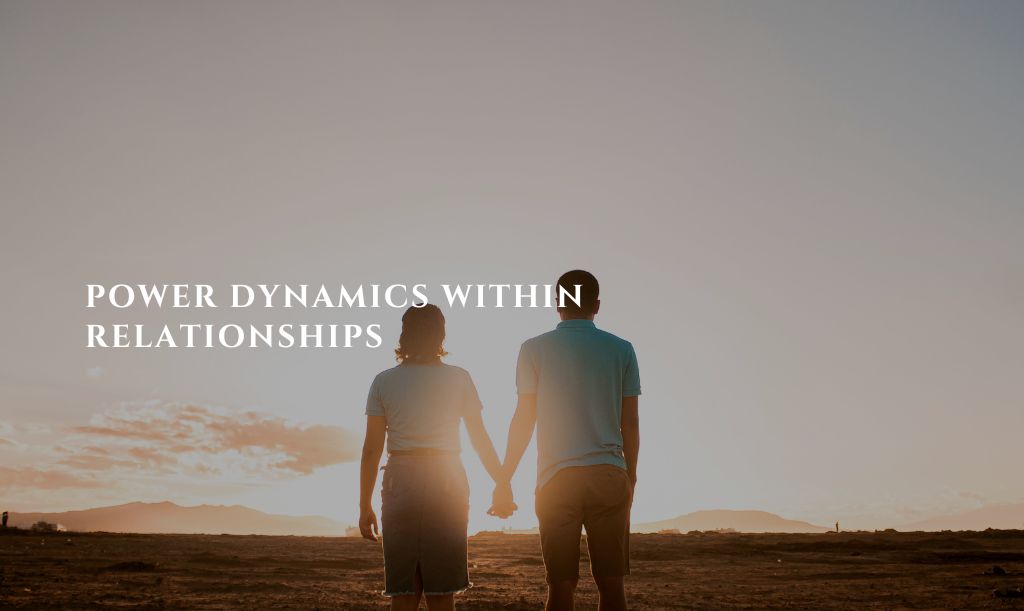
In the realm of relationships, power dynamics weave their intricate threads, often unnoticed or dismissed.
These dynamics are not necessarily negative; they exist naturally due to differences in individuals’ personalities, life experiences, and strengths.
It is crucial to recognize that power imbalances manifest themselves in various forms – emotional, financial, physical, or intellectual – and can affect both partners.
Whether we like it or not, power dynamics shape our interactions and profoundly impact our self-perception within the relationship.
Recognizing Power Imbalances And Their Effects On Individuals’ Self-Perception
Acknowledging power imbalances is an essential step towards understanding our own role within a relationship.
When one partner consistently dominates decision-making processes or holds more control over resources and opportunities, it creates an environment where the other person’s self-worth may suffer.
In such circumstances, the individual who feels subordinate may question their abilities and value in the partnership.
The erosion of self-esteem can lead to feelings of inadequacy or even resentment.
It is vital to recognize these imbalances early on to prevent them from deteriorating one’s sense of self.
Communication, Trust, And Negotiation As Tools For Maintaining Balance
To navigate power dynamics within a relationship effectively requires open communication channels built on trust and mutual respect.
Honest dialogue acts as a crucial tool for addressing any perceived inequality or imbalance between partners.
By expressing concerns about power dynamics openly with your partner, you foster an environment where both parties can voice their thoughts without judgment.
Trust enables vulnerability which paves the way for honest conversations about expectations and boundaries.
Negotiation plays an integral role in maintaining balance within a relationship with dynamic power structures.
It involves finding common ground where decisions are made collaboratively rather than being dictated by one dominant partner.
Negotiation helps to redistribute power and create a more equitable space for both individuals to thrive.
By valuing each other’s perspectives and compromising when necessary, power imbalances can be challenged, deconstructed, and ultimately transformed into a healthier, more harmonious relationship dynamic.
Understanding the power dynamics within relationships requires a keen awareness of their presence in our lives.
Recognizing power imbalances and their impact on self-perception is crucial for personal growth and maintaining a healthy partnership.
By fostering open communication, trust-building exercises, and using negotiation as tools to maintain balance, we can navigate these dynamics more effectively.
Embracing an egalitarian approach that values the contributions of both partners allows us to dismantle traditional power structures while building stronger connections based on mutual respect and shared decision-making.
Reimagining Masculinity in Modern Relationships
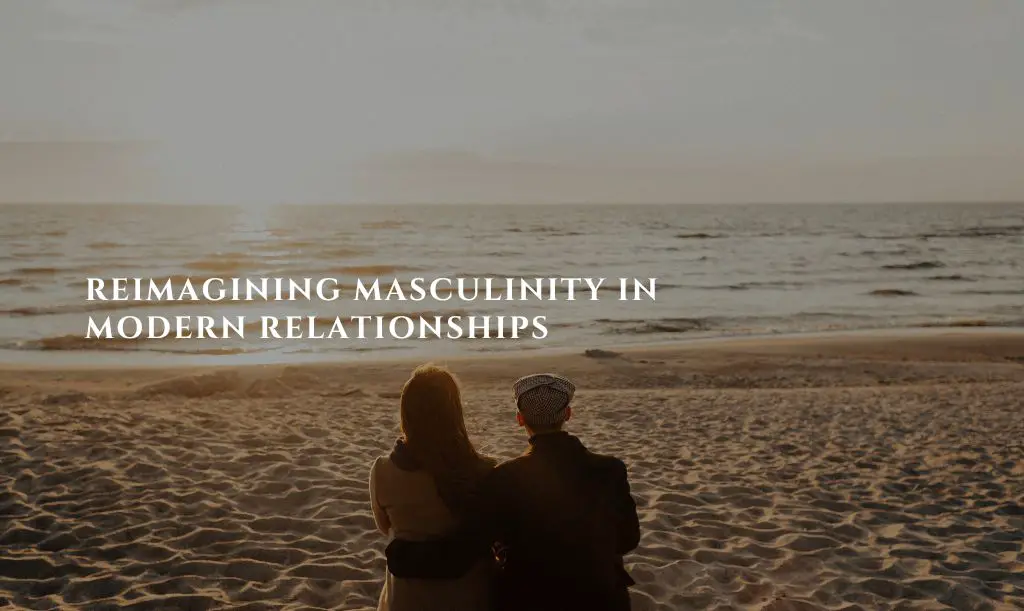
It is high time we break free from the shackles of archaic expectations that society imposes on men within relationships.
The idea that “being a man” means suppressing emotions, maintaining an unyielding facade, and subscribing to rigid gender roles is not just outdated but also detrimental to our mental and emotional well-being.
We need to challenge this toxic masculinity that has infiltrated our relationships, causing emotional disconnection and hindering true intimacy.
To deconstruct traditional notions of masculinity, we must first recognize that vulnerability is not a weakness but a strength.
It takes immense courage to open up about our fears, insecurities, and deepest feelings.
By embracing vulnerability, we create space for genuine connections with our partners.
Moreover, emotional expression should no longer be stigmatized as solely the domain of women; men too have rich inner lives that deserve exploration and articulation.
Encouraging Open Dialogue About Expectations Within The Relationship
In order to foster healthy relationships, it is crucial to have open dialogue about expectations.
Traditional gender roles often dictate specific responsibilities for each partner based on their perceived gender identity.
However, these roles are highly limiting and fail to acknowledge the unique strengths and talents individuals bring into a partnership.
We should encourage conversations where both partners express their desires, aspirations, and boundaries without fear of judgment or ridicule.
By doing so, we can collectively redefine what it means to be in a modern relationship where equality reigns supreme.
This includes renegotiating household chores and child-rearing responsibilities based on each person’s abilities rather than societal norms.
The dialogue should also extend beyond practical matters to encompass emotional needs and support systems within the relationship.
Openly discussing ways in which both partners can feel supported, understood, and validated will pave the way for a more fulfilling and balanced union.
Supporting Your Partner’s Journey
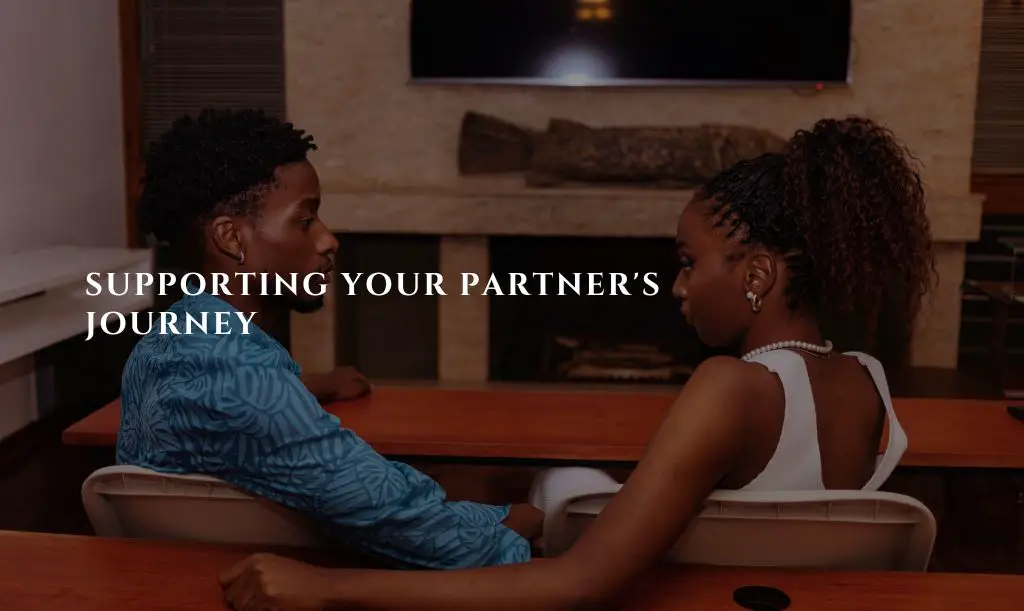
In a relationship, it is essential to remember that feeling like “the man” should never come at the expense of diminishing your partner.
Recognizing and acknowledging the unique talents, strengths, and journey of your significant other is crucial for fostering a healthy and balanced dynamic.
Understand that both partners bring their individual qualities to the table, enriching the relationship with diverse perspectives and experiences.
Supporting your partner’s journey involves actively engaging in open communication and listening to their aspirations, dreams, and struggles.
Encourage their personal growth by creating an environment that celebrates their achievements while providing unwavering support during challenging times.
It means being a pillar of strength when they need it most and offering a helping hand to overcome obstacles.
Remember that true partnership requires equal consideration for both individuals’ needs and goals.
I Feel Like The Man In My Relationship: Conclusion
‘I feel like the man in my relationship. What should I do?
Feeling like “the man” in a relationship should not be misconstrued as an opportunity for dominance or power imbalance.
True partnership thrives on mutual respect, empathy, and encouragement.
As gender roles continue to evolve in our modern society, embracing fluidity within relationships can lead to more fulfilling connections based on equality and shared responsibilities.
By challenging traditional stereotypes surrounding masculinity and femininity, we create space for authentic self-expression within partnerships.
It is through recognizing our own strengths while supporting our partners’ journeys that we foster an environment where both individuals can flourish emotionally, intellectually, and spiritually.
Ultimately, feeling like “the man” or having a strong presence within a relationship should not be about exerting control but rather about nurturing a deep sense of connection built on love, trust, understanding, and unwavering support for one another.
Related Articles:
- https://lovebridgeguides.com/do-guys-like-being-taken-care-of-when-sick/
- https://lovebridgeguides.com/my-boyfriend-constantly-questions-me/
- Does A Prom Date Mean Anything? (Answered!) - 20 February 2024
- Boyfriend Refers To Me In Third Person (Explained!) - 20 February 2024
- Is Sending Memes Flirting? Find Out Here! - 20 February 2024

